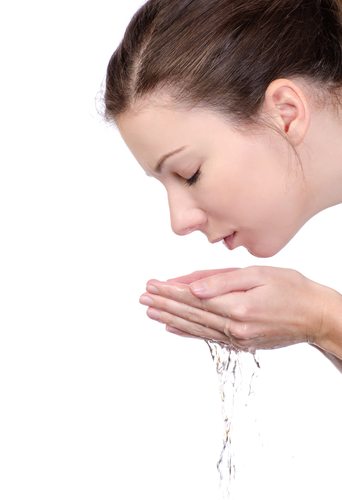Numerous factors can contribute to common skin conditions like acne, dryness, itchiness and even wrinkles that may be impacting your family. One factor many don’t consider is the effect hard water can have on our skin. The vast majority of the water in the U.S. is hard, which means it has a high mineral content which may contribute to the clogging of pores and the formation of acne and other skin conditions.
At Kinetico, we provide soft water systems and other water filtration solutions that can help with skin issues. Here are some of the basics about the way water can impact various skin conditions.
Water Basics
According the U.S. Geological Survey, over 85 percent of the water in the United States is hard, meaning it has high levels of calcium and magnesium dissolved into it. Hard Water interacts with soap and leaves an extra, soapy layer on the skin after showering or bathing. This layer can clog the pores and irritate the skin, causing itching, flakiness and overall skin dryness.
Hard water may also be connected to other skin disorders, such as eczema, because calcium and other minerals found in hard water may cause the skin to lose moisture.
Metals in Water and Your Skin
What’s actually happening is a chemical reaction in the skin’s natural oils. These oils change consistency from a liquid to a wax, and this wax is what clogs the pores and leads to acne. In addition, these same impurities can act as free radicals, bonding to healthy skin cells and destroying them – this can lead to wrinkles and lines forming on the skin.
Various metals appear to lead to different skin issues. Iron is likely the most detrimental because it can be energized by the sun, and this can be linked to cases of skin cancer. Calcium and magnesium are the most damaging for breakout-prone people, although – iron and the minerals in hard water all form the kinds of wax we mentioned above.
For many, installing a water softener will provide much needed to relief.
Try an Experiment
A simple way to see if the water may be contributing to your skin issues is to wash your face with distilled or reverse osmosis water for a few days. If you choose to use reverse osmosis water make sure the bottler hasn’t added minerals back into the water. If so, the experiment won’t work properly because the mineral added to the water is usually calcium, which means you will be washing in hard water.
If you notice that washing your face in distilled or reverse osmosis water is helping your skin to heal and feel better than you will benefit from soft water.
To learn more about water and the skin, or to find out about any of our water filters or other systems, contact the experts at Kinetico today.

